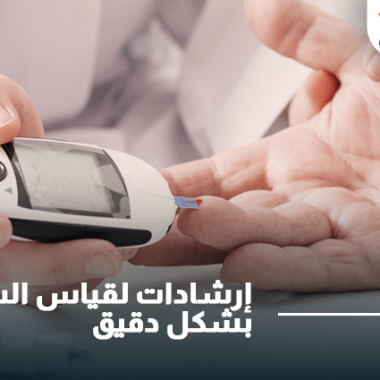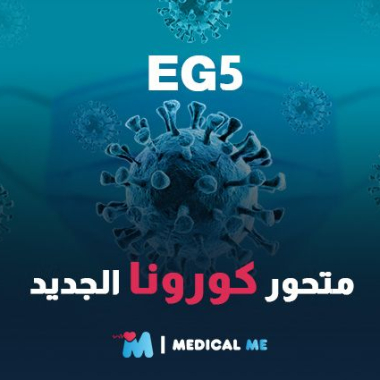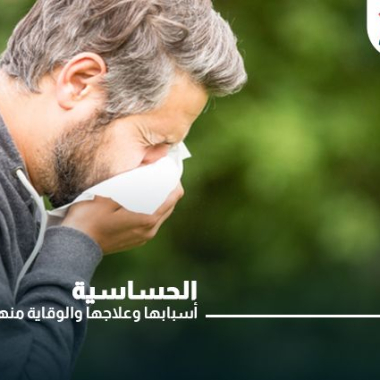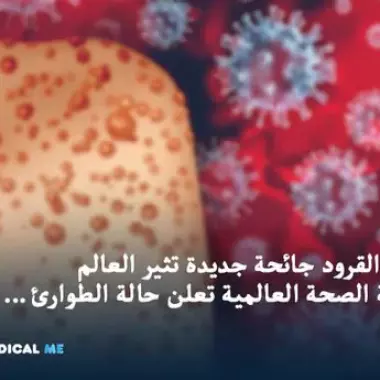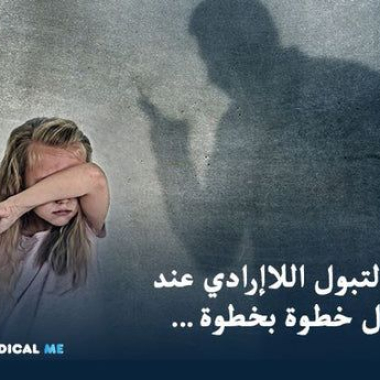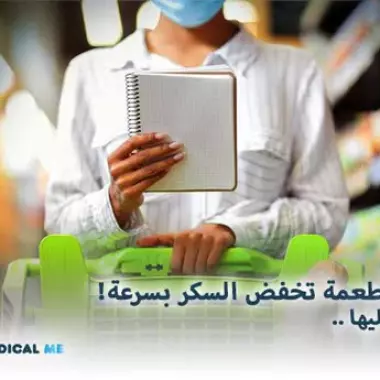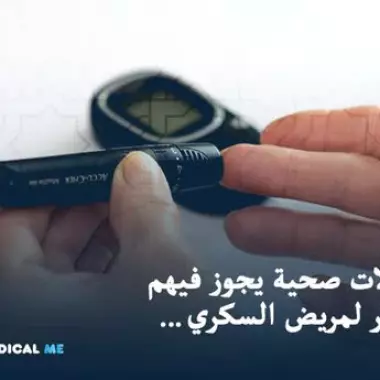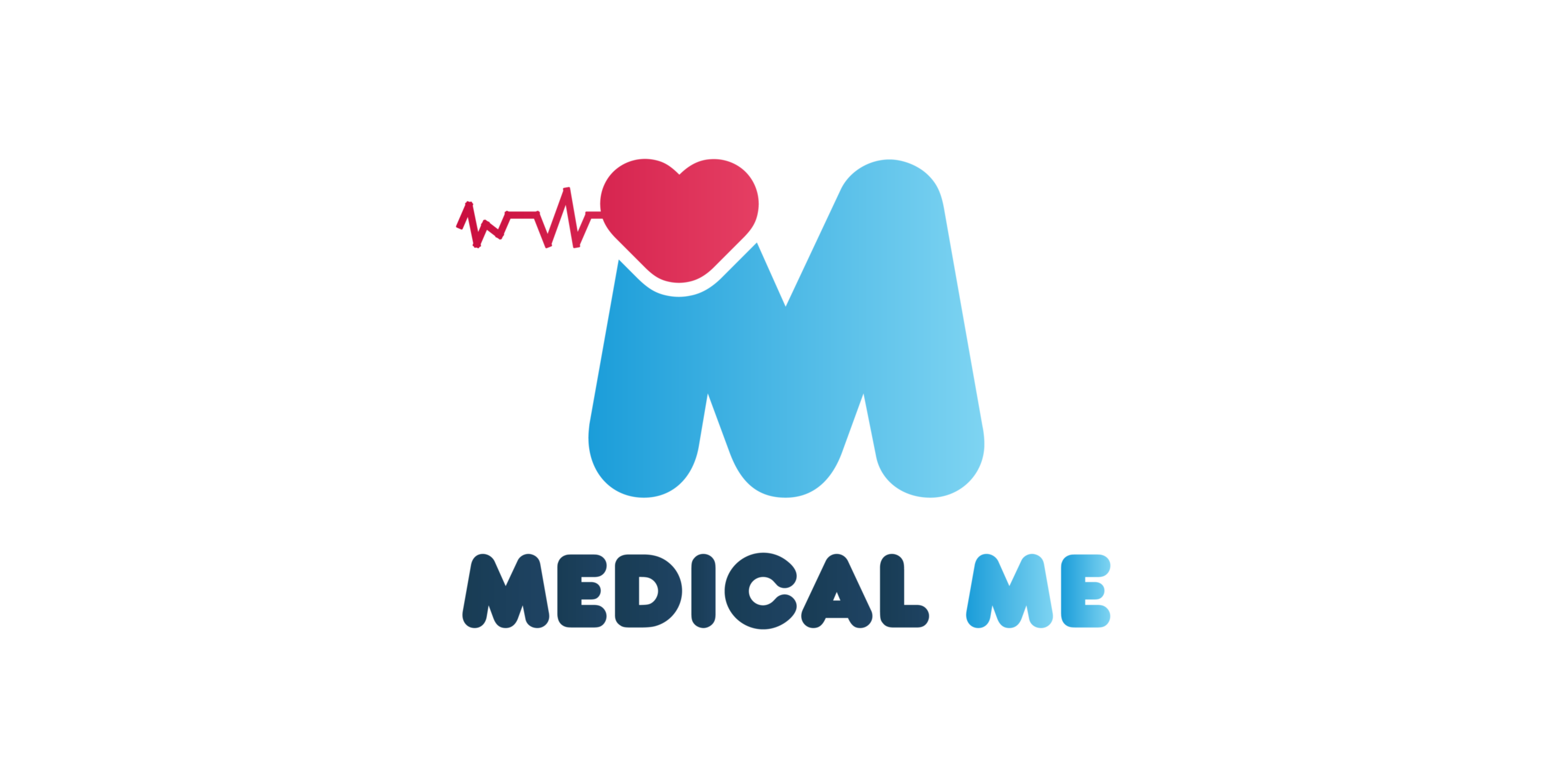أعراض الملاريا وعلاجها
الملاريا هي أحد الأمراض المعدية التي تهدد الحياة؛ وذلك لأن العدوى تحدث عن طريق لدغة نوع من أنواع البعوض الذي يعيش في المناطق الاستوائية يُطلق عليه انوفيليس، وحينما يكون ذلك البعوض حاملًا طفيل البلازموديوم ويلدغ شخص سليم ينتقل هذا الطفيل للدم وتحدث العدوى، ومن هنا سنتحدث عن أعراض المرض وعلاجها ورحلة الطفيل داخل جسم الإنسان.
بعد أن يدخل الطفيل إلى جسم الإنسان يبدأ جولته في الدم منتقلًا معه إلى الكبد ليستقر به بضعة أيام لينضُج ويصبح جاهزاً للتكاثر، ومن هنا يبدأ الطفيل رحلة جديدة في الدم تستمر يومين أو ثلاثة أيام ليتكاثر ويهاجم كريات الدم الحمراء ويدمرها، ولأن الدم بداخل أجسادنا يتجدد باستمرار تبقى تلك الطفيليات في الجسم وتهاجم كل خلايا الدم المتجددة مرة أخرى.
هو مرض مسبب بواسطة طفيليات يسمى البلازموديوم (Plasmodium) وينتقل عادة عن طريق لدغات البعوض المصابة. يعد الملاريا من الأمراض المعدية الخطيرة ويمكن أن يكون قاتلاً إذا لم يتم علاجه بشكل صحيح وفي الوقت المناسب.
أنواع الملاريا: هناك أنواع مختلفة من البلازموديوم التي تسبب الملاريا وأهمها:
-
بلازموديوم فالسيباروم (Plasmodium falciparum): يُعتبر الأكثر خطورة ويمكن أن يكون قاتلاً إذا لم يتم علاجه بشكل صحيح.
-
بلازموديوم فيفاكس (Plasmodium vivax): يسبب نوعاً من الملاريا غير الخطيرة لكنه يمكن أن يصيب الشخص بفترات عودة متكررة للإصابة بالملاريا.
-
بلازموديوم مالاري (Plasmodium malariae): يسبب أعراض ملاريا خفيفة ولكنه يمكن أن يستمر لفترات طويلة في الجسم.
-
بلازموديوم أوفال (Plasmodium ovale): يسبب أعراض مشابهة للملاريا الخفيفة وقد يسبب فترات عودة للإصابة.
ما هي أعراض الملاريا؟
عندما تنتقل المرض عن طريق لدغة البعوضة الحاملة للطفيل، أو عن طريق شخص مصاب إلى شخص سليم من خلال الدم عن طريق:
- عمليات نقل الدم إذا كان الدم المنقول من شخص حامل للطفيل تحدث الإصابة.
- عمليات نقل الأعضاء مثل الكلية أو الكبد إذا كان العضو المنقول من شخص مصاب تحدث العدوى.
- استخدام سرنجات مستعملة وينتشر ذلك بين مُتعاطي المخدرات.
- تنتقل العدوى من المرأة الحامل إلى الجنين عن طريق المشيمة.
وتظهر أعراض المرض بعد فترة من الإصابة حتى يستقر الطفيل داخل جسم الإنسان خلال عشرة أيام إلى شهر، وأحياناً يبقى الطفيل خاملًا داخل جسم الإنسان دون ظهور أية أعراض لعدة شهور.
ولكن في الغالب تتشابه أعراض المرض مع العديد من أمراض الجهاز التنفسي والهضمي مما يجعل تشخيص المرض صعب وأهم تلك الأعراض:
- ارتفاع درجة الحرارة.
- قشعريرة في الجسم تعرق.
- تشنجات.
- دوخة وصداع.
- ترجيع وإسهال دموي بسبب تكسير كريات الدم الحمراء.
- آلام في العضلات والجسم والتعب العام.
- الوخم والإرهاق.
- وجع في البطن.
ولأن تلك الأعراض تتشابه مع الكثير من الأمراض سنتحدث عن كيفية تشخيص المرض
تشخيص الملاريا:
1- التاريخ المرضي وهل تعرض المصاب للدغات البعوض، أو كان في أحد الأماكن الاستوائية التي ينتشر بها الملاريا.
2- الكشف الطبي على المريض بقياس درجة الحرارة ومتابعة الأعراض، وأحيانًا يستخدم الطبيب السونار للكشف عن تضخم الكبد أو الطحال.
3- تحليل الدم للكشف عن وجود طفيلا ل مرض ونوعها.
4- يكشف التحليل عن إصابة المريض بالأنيميا أم لا نتيجة مهاجمة الطفيل لكرات الدم الحمراء.
لجزء الأول: أسباب الملاريا
وينتقل عادة عن طريق لدغات البعوض المصابة. هناك عدة أسباب تؤدي إلى انتقال المرض وتفشيها، ومن بين هذه الأسباب:
-
لدغات البعوض المصابة: عندما يلدغ البعوض الطفيلي المصاب بالبلازموديوم، يتم نقل الطفيلي من البعوضة إلى الجسم المصاب. يستمر دور البعوض في نقل الملاريا بين الأشخاص المصابين وغير المصابين.
-
نقل الطفيلي عبر الدم: يمكن أن ينتقل الطفيلي من شخص مصاب إلى شخص آخر عن طريق تلوث الأبر والمحقن والمستلزمات الطبية المشتركة. كما يمكن أن ينتقل الملاريا عن طريق التبرع بالدم إذا كان المتبرع مصابًا بالمرض.
-
السفر إلى مناطق مصابة: يحدث انتقال الملاريا عندما يسافر شخص غير مصاب إلى منطقة تعتبر مصدرًا للإصابة بالملاريا ويتعرض للدغات البعوض المصابة في تلك المناطق.
-
نقل الطفيلي عن طريق الأم الحامل: في بعض الحالات النادرة، يمكن أن ينتقل الطفيلي من الأم المصابة إلى الجنين عن طريق الدورة الدموية المشتركة، مما يسبب ملاريا مواليد.
تُعد المناطق الاستوائية والمدارية التي تتميز بالبعوض المصابة بالملاريا أكثر عرضة لانتشار المرض. علاوة على ذلك، تلعب الظروف المناخية والبيئية دورًا في انتشار الملاريا حيث تتوافر ظروف تكاثر البعوض ونقل الطفيلي.
تعد مكافحة المرض من التحديات الصحية العالمية، ويتمثل الجهد في القضاء على البعوض المصابة والتوعية بأساليب الوقاية والعلاج الفعال. تسعى المنظمات الصحية العالمية إلى التعاون في مكافحة الملاريا والحد من تأثيرها الصحي والاقتصادي على المجتمعات المتضررة.
-
البلازموديوم: هو الطفيلي الذي يسبب المرض وينقسم إلى عدة أنواع تسبب أشكالاً مختلفة من الملاريا.
-
لدغات البعوض: ينتقل البلازموديوم عادة إلى الإنسان من خلال لدغات البعوض المصابة.
الجزء الثاني: الأعراض
-
الحمى: ارتفاع في درجة حرارة الجسم.
-
القشعريرة: شعور بالبرد الشديد والرعشة.
-
الصداع والألم العام.
-
التعب والإرهاق.
-
آلام في العضلات والمفاصل.
-
القيء والغثيان.
الجزء الثالث: التشخيص والعلاج
-
التشخيص: يتم تشخيص المرض عادة من خلال فحص الدم للكشف عن وجود الطفيلي فيه.
-
العلاج: يعتمد نوع العلاج على نوع البلازموديوم وشدة الإصابة والموقف الصحي للمريض. تستخدم العقاقير المضادة للملاريا للقضاء على الطفيليات المسببة.
الجزء الرابع: الوقاية
-
استخدام مبيدات البعوض: يوصى باستخدام مبيدات البعوض للوقاية من لدغات البعوض.
-
شبكات الحماية: يمكن استخدام شبكات الحماية لمنع دخول البعوض إلى المنازل.
-
اللقاحات: العمل جارٍ على تطوير لقاحات فعالة ضد المرض لتقليل خطر الإصابة.
أنواع الملاريا: هناك أنواع مختلفة من البلازموديوم التي تسبب الملاريا وأهمها:
-
بلازموديوم فالسيباروم (Plasmodium falciparum): يُعتبر الأكثر خطورة ويمكن أن يكون قاتلاً إذا لم يتم علاجه بشكل صحيح.
-
بلازموديوم فيفاكس (Plasmodium vivax): يسبب نوعاً من الملاريا غير الخطيرة لكنه يمكن أن يصيب الشخص بفترات عودة متكررة للإصابة بالملاريا.
-
بلازموديوم مالاري (Plasmodium malariae): يسبب أعراض مرض خفيفة ولكنه يمكن أن يستمر لفترات طويلة في الجسم.
-
بلازموديوم أوفال (Plasmodium ovale): يسبب أعراض مشابهة للملاريا الخفيفة وقد يسبب فترات عودة للإصابة.
تتطلب الوقاية من المرض ارتداء الملابس المناسبة واستخدام مبيدات البعوض وشبكات الحماية في المناطق المعرضة للإصابة بالبعوض. كما يمكن تلقي لقاحات مضادة للملاريا في بعض المناطق المصابة للحماية من الإصابة.
مكافحة الملاريا تُعد تحديًا صحيًا عالميًا، وتتطلب التوعية والتثقيف للتخفيف من تأثيرها الصحي والاقتصادي على المجتمعات المتضررة. التعاون والجهود المشتركة تسهم في تحقيق هدف القضاء على الملاريا والحد من انتشارها.
-
استخدام مبيدات البعوض: استخدم مبيدات البعوض المعتمدة والمناسبة في المناطق المعرضة لمخاطر الإصابة بالملاريا. يمكنك استخدام مبيدات الحشرات بشكل طبيعي أو البخاخات المنزلية أو الملابس المعاملة بمبيدات الحشرات.
-
ارتداء الملابس المناسبة: ارتدِ الملابس التي تغطي الجسم بشكل كامل لحماية البشرة من لدغات البعوض. استخدم الملابس ذات الألوان الفاتحة والقمصان ذات الأكمام الطويلة والسراويل الطويلة والجوارب للوقاية.
-
استخدام الشباك الحماية: استخدم شبكات حماية البعوض المثبتة على النوافذ والأبواب وحول أماكن النوم لمنع دخول البعوض إلى الداخل.
-
البقاء في الأماكن المكيفة أو المغلقة: حاول البقاء في الأماكن المغلقة خلال ساعات الليل حيث تكون البعوض أكثر نشاطًا.
-
استخدام مساحيق البعوض: استخدم مساحيق البعوض والكريمات المضادة للبعوض على الجلد للوقاية من اللدغات.
-
تلقي التطعيمات المضادة للملاريا: في بعض المناطق المصابة بالملاريا، قد يكون هناك لقاحات مضادة للملاريا متوفرة. استشر الطبيب للحصول على المعلومات المحدثة حول التطعيمات.
-
تفريغ البرك المائية: تجنب تراكم المياه الراكدة في أواني أو حاويات خارجية، حيث تكون موطناً لتكاثر البعوض. تفريغ المياه الزائدة واحتفظ بالأواني والحاويات جافة.
-
الحماية أثناء السفر: إذا كنت ستسافر إلى منطقة معرضة للملاريا، فاستشر الطبيب قبل السفر للحصول على الإرشادات والتوصيات اللازمة للوقاية من الملاريا. اتبع الإرشادات والتعليمات الصحية أثناء السفر.
الوقاية من مرض الملاريا تعتمد على التعاون المشترك للحد من تفشي البعوض وانتقال الطفيليات. الالتزام بالإجراءات الوقائية يمكن أن يحميك ويحمي المجتمع من هذا المرض الخطير.
علاج الملاريا:
بعد أن تحدثنا عن أعراض المرض وطرق التشخيص سنتحدث عن طرق العلاج الذي يعتمد في الأساس على القضاء على الطفيل.
يختلف علاج المرض باختلاف نوع الطفيل، وعُمر المصاب، وشدة الأعراض، وإذا كانت المصابة امرأة حامل.
علاج الملاريا: يمكن علاج المرض باستخدام الأدوية المضادة للملاريا. يتم اختيار الدواء الأنسب وفقًا لنوع البلازموديوم ومدى شدة الإصابة وحالة المريض. من المهم الكشف عن المرض والبدء في العلاج بأسرع وقت ممكن لتجنب حدوث مضاعفات خطيرة.
الوقاية: تشمل الوقاية من المرض ارتداء الملابس الملائمة واستخدام مبيدات البعوض وشبكات الحماية في الأماكن المعرضة للإصابة بالبعوض. كما يمكن تلقي لقاحات مضادة للملاريا في بعض المناطق المصابة للحماية من الإصابة. إذا كنت تعيش أو تخطط للسفر إلى مناطق معرضة للملاريا، يُنصح بالتشاور مع الطبيب لتحديد الاحتياطات اللازمة للوقاية من الملاريا.
بعض الأدوية التي تستخدم في علاج المرض:
- الأدوية التي تجمع بين المادة الفعالة atovaquone و proguanil مثل دواء: malarone.
- الأدوية التي تحتوي على المادة الفعالة دوكسيسيكلين و كوانين سلفات مثل: المضاد الحيوي فيبراميسين vibramycin.
- وتستخدم أيضًا مشتقات الكلور كايين فوسفات في علاج الأمراض الفطرية ولكن أثبتت أنها غير فعّالة للقضاء على الملاريا.
ولكن يجب استشارة الطبيب قبل تناول أي علاج لمعرفة الجرعة والتأكد من أنك مصاب بالمرض.
ولأن الوقاية خير من العلاج ننصحك إذا كنت مُقدِماً على السفر لمنطقة استوائية يكثر بها المرض أن تتخذ بعض الإجراءات الوقائية مثل: استخدام شبكة الناموس ووضعها على السرير قبل النوم، ودهن الجسم بالدهانات المضادة للدغات البعوض، واستشارة الطبيب بشأن وجود مصل مضاد للملاريا، أما إذا شعرت بأحد أعراض المرض وعلاجها ابدأ في رحلة العلاج على الفور.
المخلص
مرض الملاريا هو تحدي صحي عالمي يستدعي اهتمامًا جادًا من المجتمع الدولي. من خلال توعية الجمهور بأعراض ووقاية المرض وتعزيز الجهود للتصدي له، يمكن العمل معًا على تقليل الإصابات والوفيات المرتبطة
يُعد المرض من الأمراض الخطيرة والمعدية التي تشكل تحديًا صحيًا عالميًا. تحتاج الملاريا إلى الكشف المبكر والعلاج الفوري لتجنب حدوث مضاعفات خطيرة. من المهم العمل على الوقاية من المرض من خلال اتباع الإرشادات الصحية الموصى بها والبحث عن حلول للحد من انتشار المرض. التوعية والتثقيف هما المفتاح للقضاء على الملاريا وتحقيق الصحة العالمية.
هناك أنواع مختلفة من بلازموديوم تسبب الملاريا، أهمها بلازموديوم فالسيباروم وبلازموديوم فيفاكس وبلازموديوم مالاري وبلازموديوم أوفال. يتم انتقال المرض عن طريق لدغات البعوض المصابة بالطفيلي، ويمكن أن ينتقل الطفيلي عبر الدم أو التبرع بالدم. يمكن أن يصاب الأشخاص بالملاريا عندما يسافرون إلى مناطق مصابة أو عندما يكونون عرضة للدغات البعوض في المناطق الموبوءة.
لا يوجد لقاح مضمون للملاريا حتى الآن، لكنه يمكن علاجها باستخدام الأدوية المضادة للملاريا. من المهم الكشف عن المرض والبدء في العلاج بأسرع وقت ممكن لتجنب حدوث مضاعفات خطيرة. تشمل التدابير الوقائية ارتداء الملابس الملائمة واستخدام مبيدات البعوض وشبكات الحماية في المناطق المعرضة للإصابة بالبعوض. يسعى الجهود العالمية لمكافحة الملاريا إلى الحد من انتشار المرض وتحسين التشخيص والعلاج والوقاية للقضاء على هذا المرض الخطير.
يمكنك قراءة المزيد عن:
كيف تؤثر شرائط قياس السكر على دقة التحليل وطرق حفظها بشكل صحيح
Sources:












